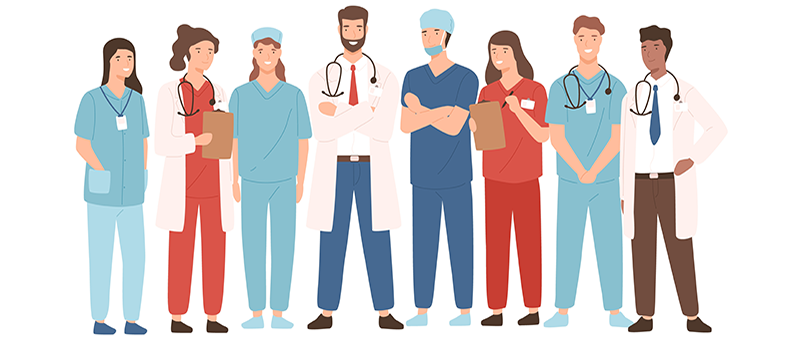4 The importance of learning as an AMR surveillance professional
For some people, being professional means being smartly dressed; for others, it means having advanced qualifications, being in a position of authority or supervising others. But being a professional is more than this: it is also about developing skills and competence in your chosen field.
Activity 4: What does being a professional mean to you?
Take a few moments to think about what being a ‘professional’ means to you.
Discussion
You may agree that being professional means being smartly dressed, supervising other or having advanced qualifications; but you may have thought of other things that relate to your role or your experience of working with other people. Being professional means different things to different people.
Surveillance work must be expanded and updated as new AMR surveillance practices and techniques are developed. This means that AMR surveillance professionals need to continually expand their practice and make sure they have up-to-date knowledge about surveillance techniques and data interpretation. As an AMR surveillance professional, you should be committed to learning and developing new skills and knowledge through continuing professional learning (which is sometimes known as continuing professional development, or CPD).
You probably have already had experience of many different opportunities to learn in relation to your role as an AMR surveillance professional. Some of them may have been formal: lectures or classes at your school, college or university, for example. Others, like learning from one of your colleagues, may have been informal.
Think about the learning that you have already undertaken as part of your role. What examples of formal and informal learning have you experienced?
Examples of formal learning could include classroom learning, laboratory training courses, seminars or web-based e-learning like these online modules. Examples of informal learning could include mentoring, reading journal articles, networking and attending conferences. Don’t worry if you didn’t include any of these examples – everyone’s learning journey is different and you may have experienced different opportunities to learn and develop your skills.
Now think about a time you did something in a different way at work. How did you learn the new way of working – for example, was it in classroom training, or from talking to a colleague? What effect did it have on your role?
You may have thought about an example of learning that directly led to taking more responsibility in your current role or to a promotion. Or you may have thought about a time where you learned a new technique that you now apply routinely in your role. However, professional learning can also affect your role indirectly: for example, by improving your presentation skills so that you are more confident to share AMR information with colleagues.
Professional learning is an opportunity to update your knowledge and skills, but it is only effective if it changes the way that you work. The modules in Tackling antimicrobial resistance will give you opportunities for learning related to your role as an AMR surveillance professional, but it is important that you realise that professional learning is about bringing together this theory with your own practical experience. One way to bring together learning and practical experience is through reflection.
3.1 Communication between AMR surveillance professionals



